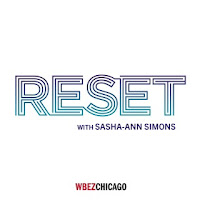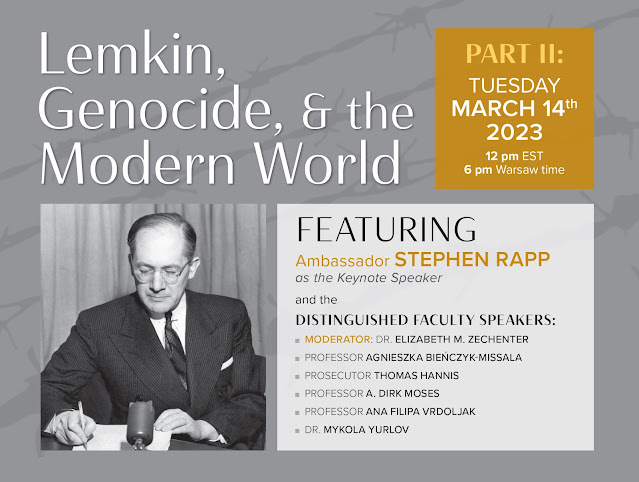Culled from my notes, here are some of the most interesting things I heard last week in Taipei at RightsCon, the world's leading summit on digital rights for technology, commercial, civil society, and government sectors.
 |
| A dragon towers over the 2025 Taiwan Lantern Festival in Taoyuan. RJ Peltz-Steele CC BY-NC-SA 4.0 |
China is methodical in suppressing conversation around the world about the repression of the Uyghur people, according to representatives of the World Uyghur Congress (WUC). Within days of her speaking at the Hudson Institute, WUC Chair Rushan Abbas said, her sister and aunt in China disappeared. Chinese officials sometimes approach venues hosting conferences that will discuss the Uyghurs and offer them double the price to cancel the conference contract, according to Haiyuer Kuerban, director of the WUC Berlin office. Now governments in England and Germany are keen to buy from Chinese firms such as Huawei the very tech that Chinese authorities use to surveil Uyghur activists and their families, Kuerban said, a perverse reward for the facilitation of human rights abuse.
 |
| Linjiang night market bustles in Taipei. RJ Peltz-Steele CC BY-NC-SA 4.0 |
Undersea Infrastructure
Remember that all of these panels took place in Taiwan, so criticism of China carried a grave sort of resonance. While discussion of digital rights naturally suggests the metaphysics of cyberspace, the infrastructure of the infosphere exists very much in the real world. One fascinating panel of experts fretted over the vulnerability of the world's undersea cables. Recent outages, such as the cut cable in the Gulf of Finland at Christmas, concerningly exhibit indicia of human agency. Professor Yachi Chiang, of the National Taiwan Ocean University, said, to my surprise, that Taiwan is located at right about the world's highest-density crossroads of undersea traffic. She's right; you can see it at the Submarine Cable Map by TeleGeography:
 |
| Submarine Cable Map CC BY-SA 4.0 |
The security challenges of this network are massive. About 20% of damage results from natural forces, such as deterioration and shark bites, Chiang said; sharks like to bite cables. About 70% of damage is caused by people. A lot of that is inadvertent, anchoring by fishing vessels. But there's no easy way to determine whether there was a malicious act, much less a nation behind it. In the Christmas incident, Finnish officials have alleged a deliberate anchor drag by a Cook Islands-flagged vessel doing Russia's bidding, NPR reported in December.
Taiwan had five incidents already in 2025, Chiang said, with four domestic lines and one international line disrupted. In one incident, the Taiwan Coast Guard took a vessel into custody and detained the crew. That incident was suspicious, because the boat had irregular routing for fishing and inexplicably bore a changeable nameboard. But the capture was exceptional, only possible because the ship was in Taiwanese waters, Chiang explained. On the high seas, ships bear flags of convenience, and any claim against the vessel must be taken up with the flag nation. Those claims in distant and ill developed bureaucracies go nowhere. So some better coordinated legal response is needed to protect the undersea information infrastructure, Chiang concluded.
Authoritarianism in Africa
While the United States retreats to some amalgam of isolationism and opportunism, China is dominating the developing world technologically. China built more than 70% of the 4G network in Africa, Amnesty International's Sikula Oniala said, and now is working on 5G. Chinese-made TVs are flooding the market, Oniala said, but to work, they must be connected to the internet via their Chinese software, raising specters of surveillance and control.
 |
Starlink deployment over Rhode Island, February 2025. RJ Peltz-Steele CC BY-NC-SA 4.0 |
While Starlink seems to promise liberation from government gateways, authorities in countries such as Sudan refuse to license the service and are pressuring the company to limit roaming access for accounts opened abroad, such as in neighboring Kenya, Mahjoub said. Worse, Tor Project Executive Director Isabela Fernandes warned, beware the gift bearer. The Bolsonaro regime in Brazil used Starlink data to track down and kill indigenous activists, she said.
Correspondingly, public access to information (ATI, freedom of information, or FOI) law is on the wane. In Kenya, Uganda, and Zimbabwe, mass surveillance is chilling human rights activism. And governments—even Kenya, the ATI law of which, on paper at least, I praised—are following Chinese examples in ATI law, Oniala said, reducing transparency purportedly in the name of national security.
Data Protection in Africa
Even with the best of intentions, African governments hardly can be expected to stand up to tech giants such as Meta, with turnovers that dwarf nations' GDPs, Open Technology Fund Fellow Tomiwa Ilori said. Speaking to African countries' efforts to establish meaningful enforcement of data protection laws, Ilori analogized: "You only get to kill snakes because they don't move together." In other words, African countries must coordinate their efforts. Franco Giandana Gigena, an Argentine lawyer and policy analyst for Access Now, described a similar dynamic in Latin American countries' inability to resist incentives from the U.S. government and American corporations to look the other way on data protection enforcement.
In the vein of collective action, the African Union Convention on Cyber Security and Personal Data Protection came into force in 2023, upon accession by Mauritania. However, the convention, adopted in 2014, already is dated. Ilori suggested it would benefit from optional protocols on extraterritorial application and stronger enforcement, and overall, African people need more education about their rights.
At that, there might be cultural impediments to EU-style data protection. Thobekile Matimbe, a senior project manager for the Nigeria-based Paradigm Initiative, said that the convention perspective on privacy, while inspired by the EU General Data Protection Regulation (GDPR), is more communitarian than individualist. Curiously, the African perspective, which prizes the integrity of the family, for example, over self-determination or the right to dissent, marks the same ground from which the human right of data protection emerged in the European tradition. The problem, Matimbe explained, is that authoritarians invoke the communitarian perspective to subordinate personal freedoms to the purported imperative of national security. That rationalization has seen surveillance deployed in Malawi, for one example, targeting human rights advocates, critics of government, and journalists, Matimbe said.
Disinformation Regulation
The classical dichotomy between true and false no longer works to balance free expression and disinformation regulation, according to Lutz Güllner, head of the European Economic and Trade Office in Taiwan. As Ukrainian journalist and Public Interest Journalism Lab CEO Nataliya Gumenyuk put it, debunking just isn't working anymore.
The problem, Güllner said, is that disinformation can have truth at its core, but the dis arises in the spin. That's why, he said, the EU's new Digital Services Act (DSA) aims not at content, but at manner of presentation: imposing on Big Tech a responsibility to police platforms for manipulative amplification of speech or suppression of others' speech (for example, planting an item of disinformation in a flood of mundane but accurate news). That isn't to say that the DSA strikes the right balance. Dionysia Peppa, a Greek lawyer and senior policy analyst for Beirut-based SMEX, said that the DSA rule on takedown of illegal content does not define "illegal," devolving authority to member states. In a time of right-leaning elections in Europe, states might disagree sharply over politically charged questions, such as when policy criticism of Israel becomes illegal hate speech.
In a similar vein, Liliana Vitu, chair of the Audiovisual Council of Moldova, talked about the challenges of combatting Russian propaganda in mass media. Banning "primitive propaganda" in "news" and talk shows was easy, she said. The devil lay in entertainment. For example, Russia-originating programs might consistently portray European characters as gay, effeminate, or weak, playing to stereotypes, she explained, while Russian characters appear masculine and strong.
 |
| Ukrainian journalists Nataliya Gumenyuk and Angelina Kariakina talk about The Reckoning Project, which trains conflict journalists in the preservation of evidence to prosecute war crimes. RJ Peltz-Steele CC BY-NC-SA 4.0 |
The Reckoning Project, which Gumenyuk co-founded, occupies a compelling position at the junction of journalism and law. Gumenyuk said she tired of seeing reports collected by journalists excluded from war-crime investigations and prosecutions because the journalists did not understand rules of evidence. The Reckoning Project brings together journalists and lawyers to accomplish their complementary missions in seeking truth and justice. Gumenyuk gave as an example the questions a journalist might ask of a witness of atrocities, such as those committed by Russian forces against civilians in Bucha. Ordinarily, a journalist might ask, "How did the Russian soldiers kill this man?" But a leading question yields exclusion of the response as evidence in a legal proceeding. So journalists are trained to ask instead, "Tell me what happened that day."
Apropos of lawyering skills and picking up on the point that tech and its ill-intentioned users evolve faster than law and regulators, Armenian attorney and former head of the Armenian Data Protection Authority Gevorg Hayrapetyan played my tune when he told an audience:
One of the most important disciplines in law is philosophy of law, what law is and what it ought to be. One of the most important steps in developing human rights is recognizing the right.
Data protection, after all, was not a thing until someone thought of it. Maybe that's why it's not a thing in the United States. If we strip black-letter law of theory and policy and dumb down the American law school curriculum to comprise a glorified bar course and skills-training program, then we're headed in the right direction. Right? Asking for a friend.
Time to Save the World
Even were we all so inclined, is there time yet to save the world? Probably not. Law and regulation can't keep up, Güllner said, so the answer has to come from education, to develop people's sensory reflexes to detect disinformation. That will take a generation. "Ask my Ukrainian colleagues," he said. "We don't have that long."
Vitu described complex Moldovan legislation with multi-factor tests to determine whether disinformation conveys falsity and threatens national security. But that took years to develop with civil society stakeholders at the table to protect free expression; propaganda meanwhile grew yet more sophisticated. "Moscow never sleeps," she lamented.
And Raša Nedeljkov, with the Serbian Center for Research, Transparency and Accountability, summed up the anxiety wracking the world:
A beacon of light for us was U.S. democracy. Now look what is happening.
Maybe that's the silver lining, journalist Tess Bacalla of the Asia Democracy Network suggested: The rest of the world, especially the European Union, will have to step up.













.jpg)












.png)
